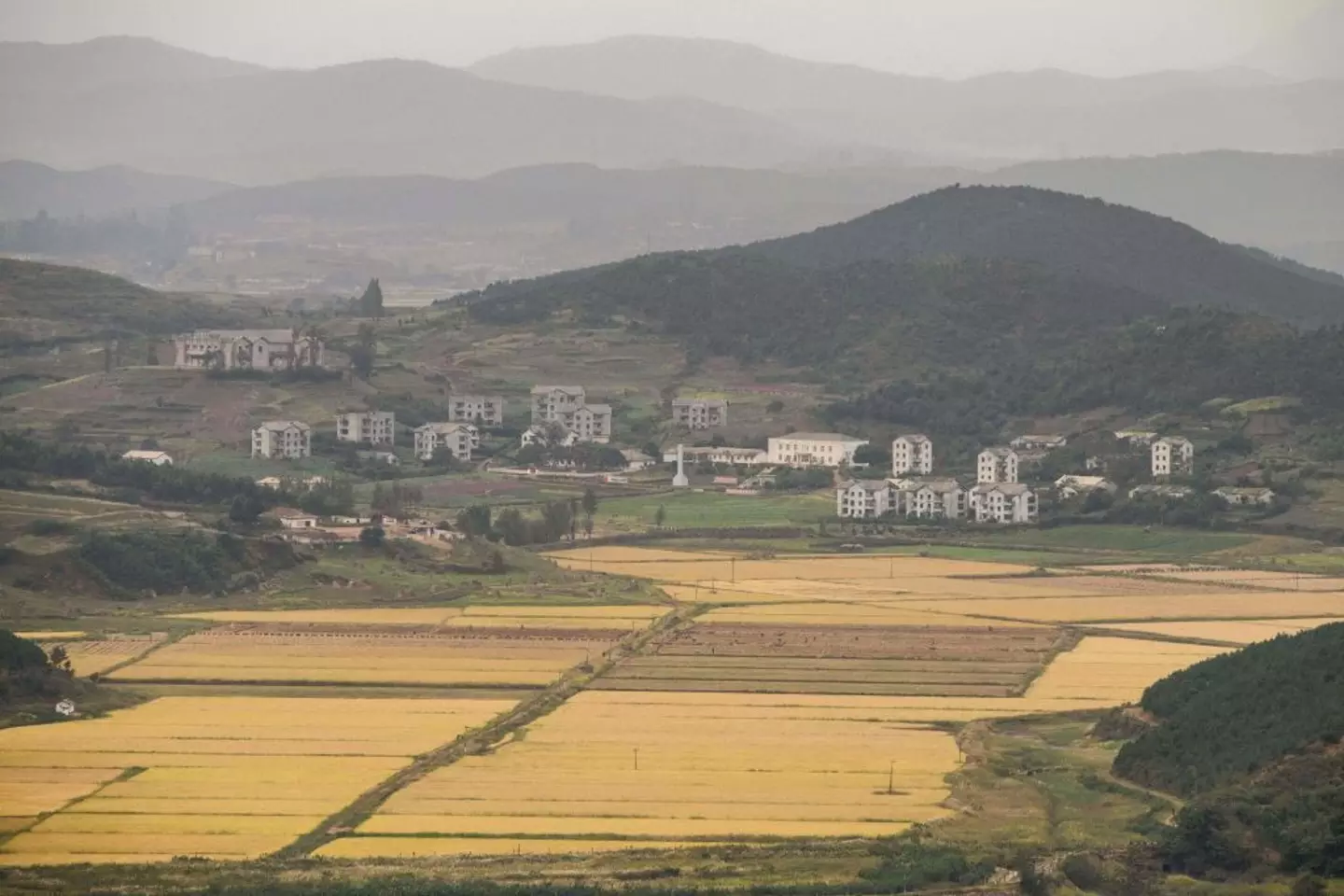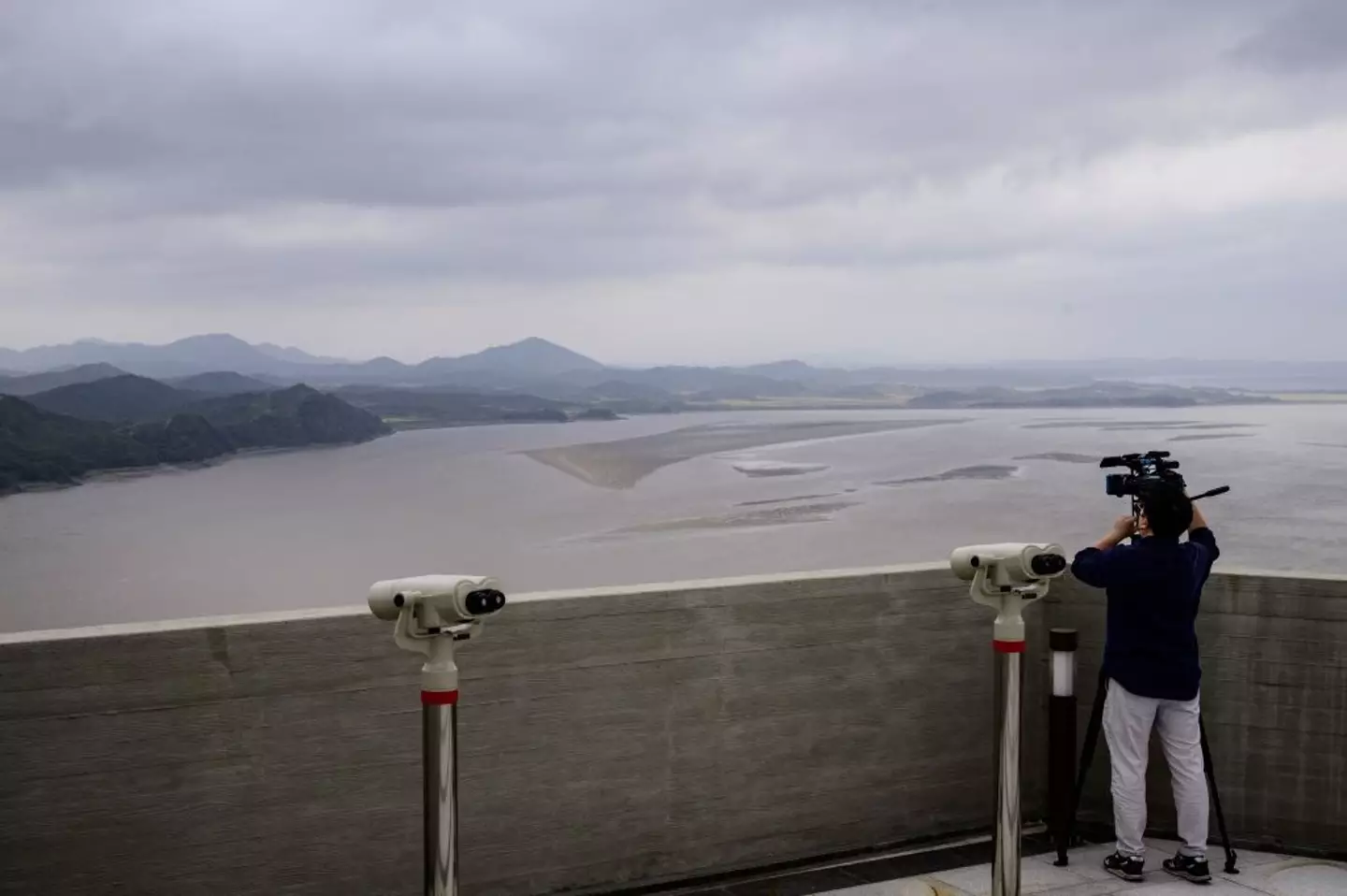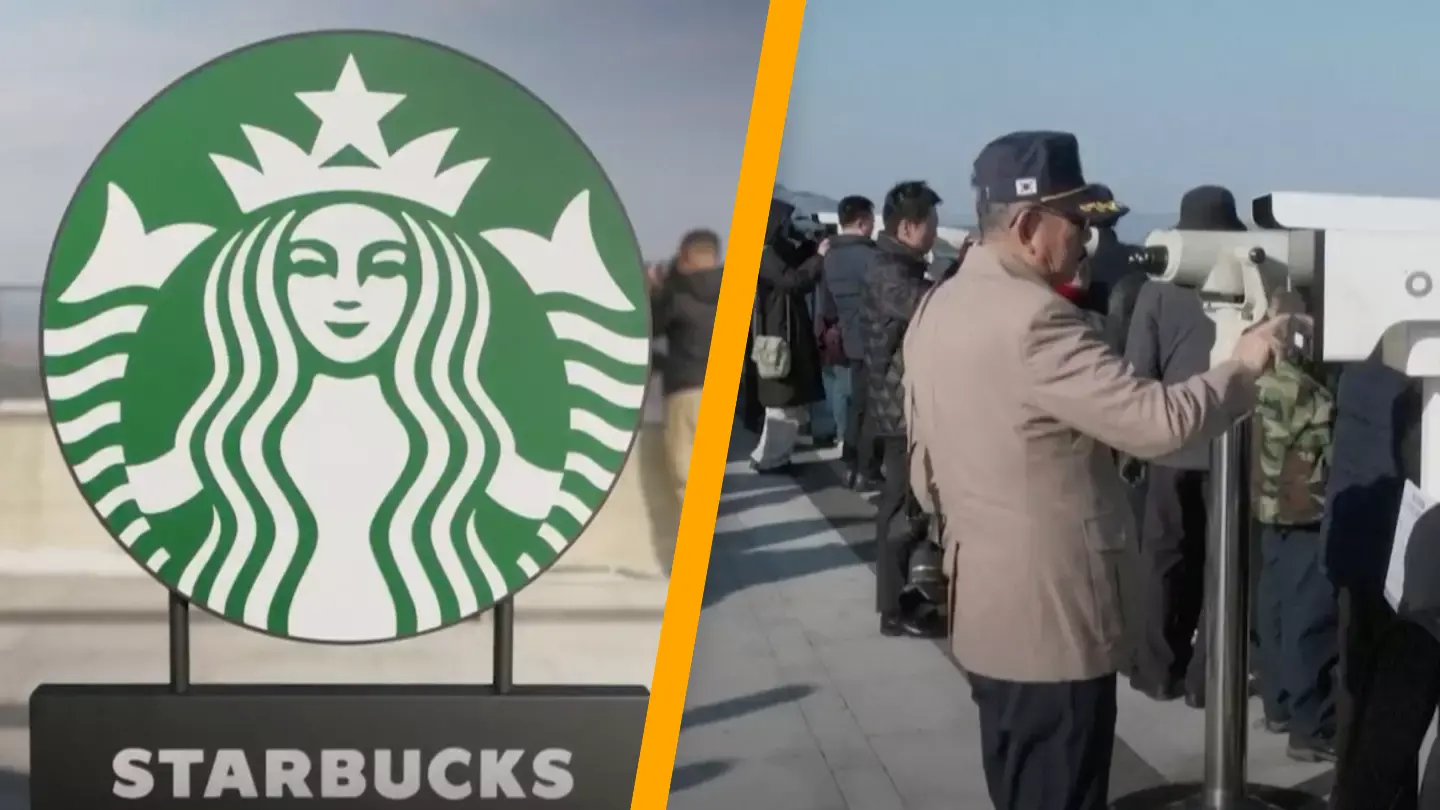Starbucks is known for its freshly ground coffee beans, diverse options, friendly service, creamy milk, and reasonable prices. However, a glimpse into life in North Korea isn’t typically on the menu.
Despite being an unusual feature, Starbucks has recently opened a new location in a South Korean observatory, which offers just that.
This observatory is situated a mere mile from North Korea, over 30 miles northwest of Seoul, the capital of South Korea. It is located at Aegibong Peace Ecopark, north of Gimpo city.
Here, customers can sip on their favorite flavored lattes while enjoying views of Gaepung county, part of North Korea, across the Demilitarized Zone. The scenery includes what appears to be farmlands and a quiet farming community.
In an interview with Reuters, a 48-year-old resident of Gimpo expressed disdain for the citizens of North Korea, who live under the strict regime of Kim Jong-Un.
The Kim family’s dictatorship, spanning Kim Jong-Un, his father, and grandfather, has ruled North Korea since the Korean War in 1948, leading to a highly secretive state.

Baek Hea-soon expressed to the publication, “I wish I could share this tasty coffee with the people in North Korea.”
The observatory’s location on the border between the two Koreas raises the question of why Starbucks chose this spot for a new store.
The decision by Gimpo city officials aims to attract more tourists and increase foot traffic in the town. They believe that Starbucks represents ‘robust security on the Korean Peninsula through the presence of this iconic capitalist brand’.
Before reaching this unique Starbucks, tourists must pass through a military checkpoint to access the observatory.

The observatory, offering views of North Korea, is also reportedly a site where North Korea has been sending waste attached to balloons across the border into South Korea.
This balloon strategy dates back to the 1950s and has been utilized by both Koreas.
North Korea claims its actions are in retaliation to ‘frequent scattering of leaflets and other rubbish’ from South Korean activists.
In a statement from May, North Korea’s vice-minister of defense, Kim Kang, declared, “Mounds of wastepaper and filth will soon be scattered over the border areas and the interior of the ROK [Republic of Korea, the official name for South Korea] and it will directly experience how much effort is required to remove them.”

